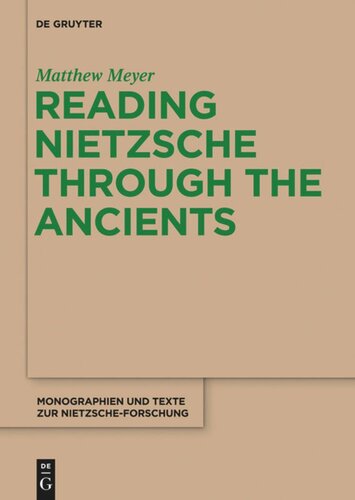

Most ebook files are in PDF format, so you can easily read them using various software such as Foxit Reader or directly on the Google Chrome browser.
Some ebook files are released by publishers in other formats such as .awz, .mobi, .epub, .fb2, etc. You may need to install specific software to read these formats on mobile/PC, such as Calibre.
Please read the tutorial at this link: https://ebookbell.com/faq
We offer FREE conversion to the popular formats you request; however, this may take some time. Therefore, right after payment, please email us, and we will try to provide the service as quickly as possible.
For some exceptional file formats or broken links (if any), please refrain from opening any disputes. Instead, email us first, and we will try to assist within a maximum of 6 hours.
EbookBell Team

0.0
0 reviews Nietzsche’s work was shaped by his engagement with ancient Greek philosophy. Matthew Meyer analyzes Nietzsche’s concepts of becoming and perspectivism and his alleged rejection of the principle of non-contradiction, and he traces these views back to the Heraclitean-Protagorean position that Plato and Aristotle critically analyze in the Theaetetus and Metaphysica IV, respectively. At the center of this Heraclitean-Protagorean position is a relational ontology in which everything exists and is what it is only in relation to something else. Meyer argues that this relational ontology is not only theoretically foundational for Nietzsche’s philosophical project, in that it is the common element in Nietzsche’s views on becoming, perspectivism, and the principle of non-contradiction, but also textually foundational, in that Nietzsche implicitly commits himself to such an ontology in raising the question of opposites at the beginning of both Human, All Too Human and Beyond Good and Evil.